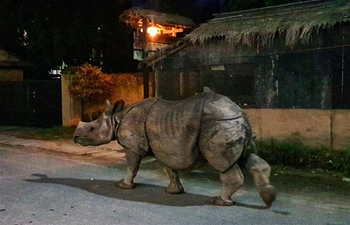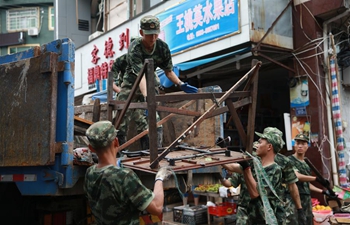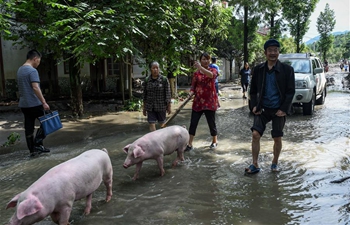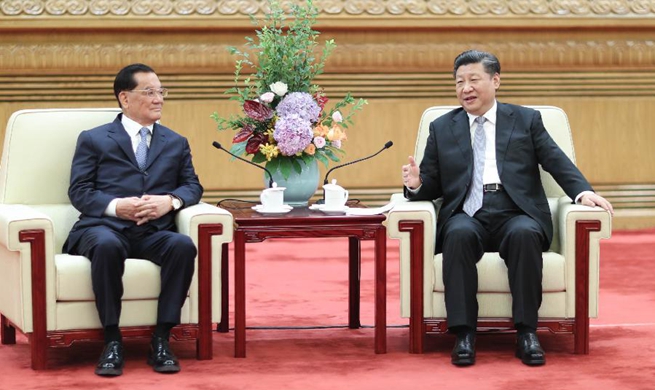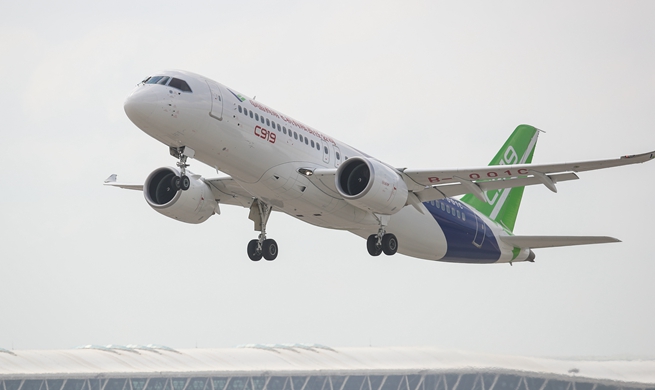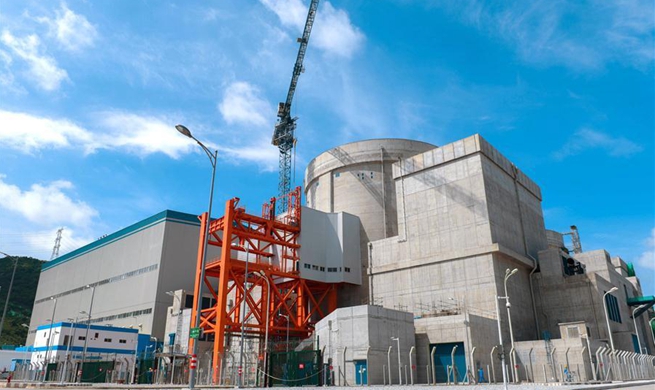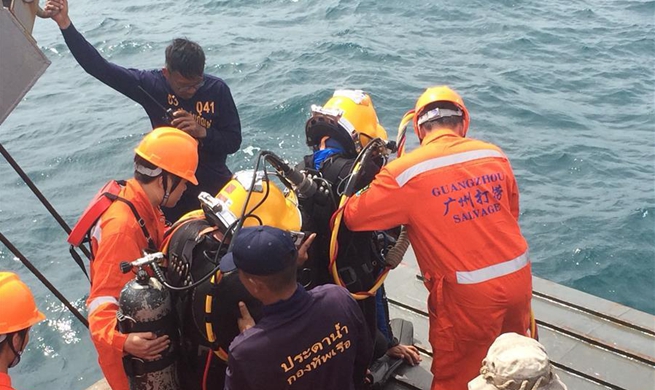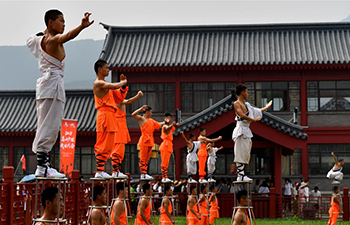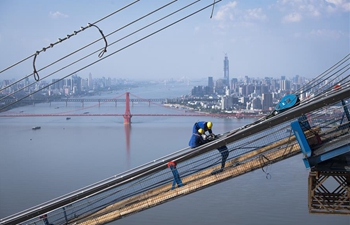UNITED NATIONS, July 13 (Xinhua) -- The Security Council on Friday adopted a resolution to impose an arms embargo on South Sudan in addition to current sanctions, till May 31, 2019.
Resolution 2428 won nine votes in favor, the minimum requirement for adoption. The remaining six members of the Security Council -- Bolivia, China, Equatorial Guinea, Ethiopia, Kazakhstan and Russia -- abstained.
To be adopted, a Security Council resolution needs nine votes in favor and no veto from any of the five permanent members of the council -- Britain, China, France, Russia and the United States.
Resolution 2428 renews a travel ban and asset freeze against designated individuals and entities till May 31, 2019. It also renews the mandate of the Panel of Experts, who assist the work of the sanctions committee, until July 1, 2019.
The resolution adds two individuals to the blacklist for travel ban and asset freeze. They are Malek Reuben Riak Rengu, the former deputy chief of staff of South Sudan's army, and Paul Malong Awan, former chief of staff of South Sudan's army who rebelled last year.
The resolution expresses deep concern at the failures of South Sudanese leaders to bring an end to the hostilities and condemns the continued and flagrant violations of peace agreements.
The Security Council adopted a U.S.-drafted resolution on May 31 to renew South Sudan sanctions temporarily till July 15, 2018, to allow time for the introduction of an arms embargo unless the parties stop fighting and agree on a viable political agreement.
A recent report of UN Secretary-General Antonio Guterres said fighting did not stop in South Sudan.
Before the vote, Ethiopian Ambassador to the United Nations Tekeda Alemu, whose country is leading regional efforts to revitalize the South Sudan peace process, told the Security Council that the timing for the introduction of an arms embargo is not right and asked members not to vote for the U.S. draft.
Shortly after its independence from Sudan in 2011, South Sudan plunged into civil war. Up to 300,000 people are estimated to have been killed since late 2013. More than 1.5 million people have fled to neighboring countries, and many more are internally displaced.







